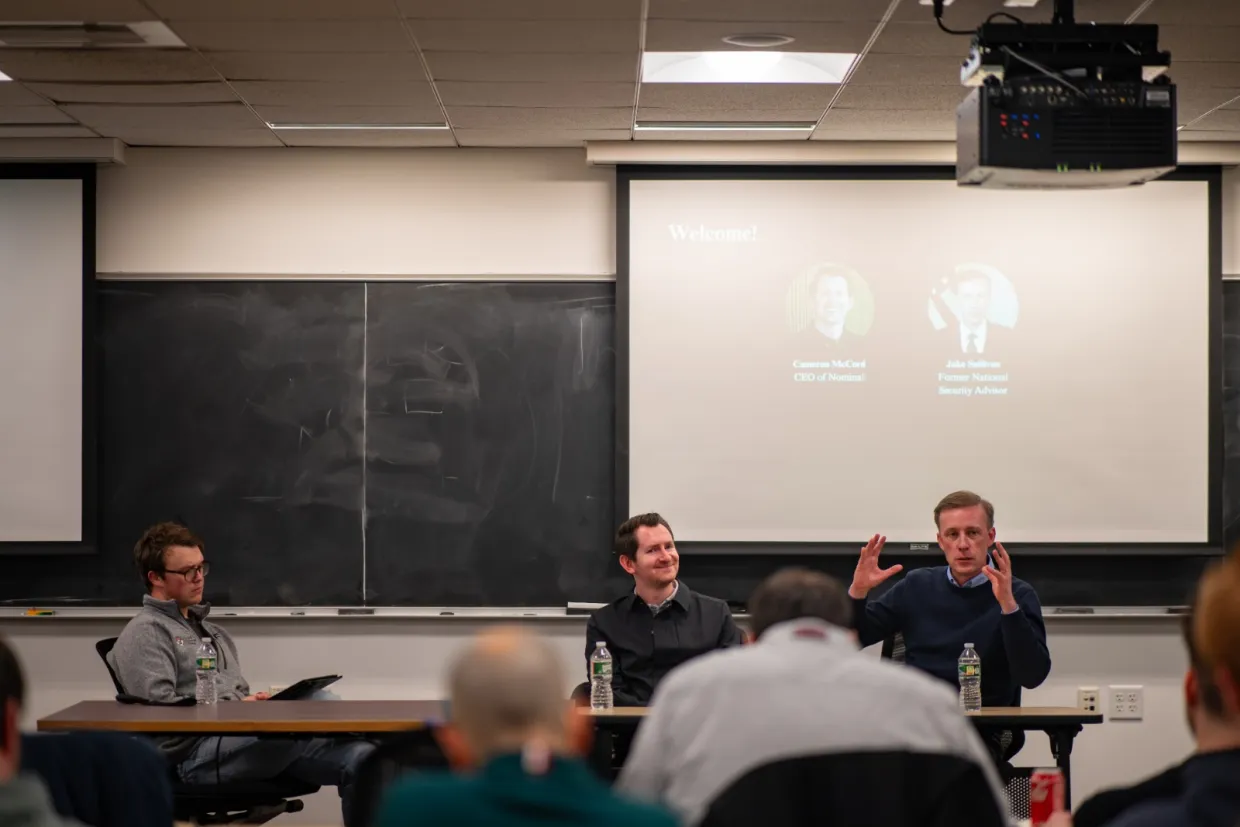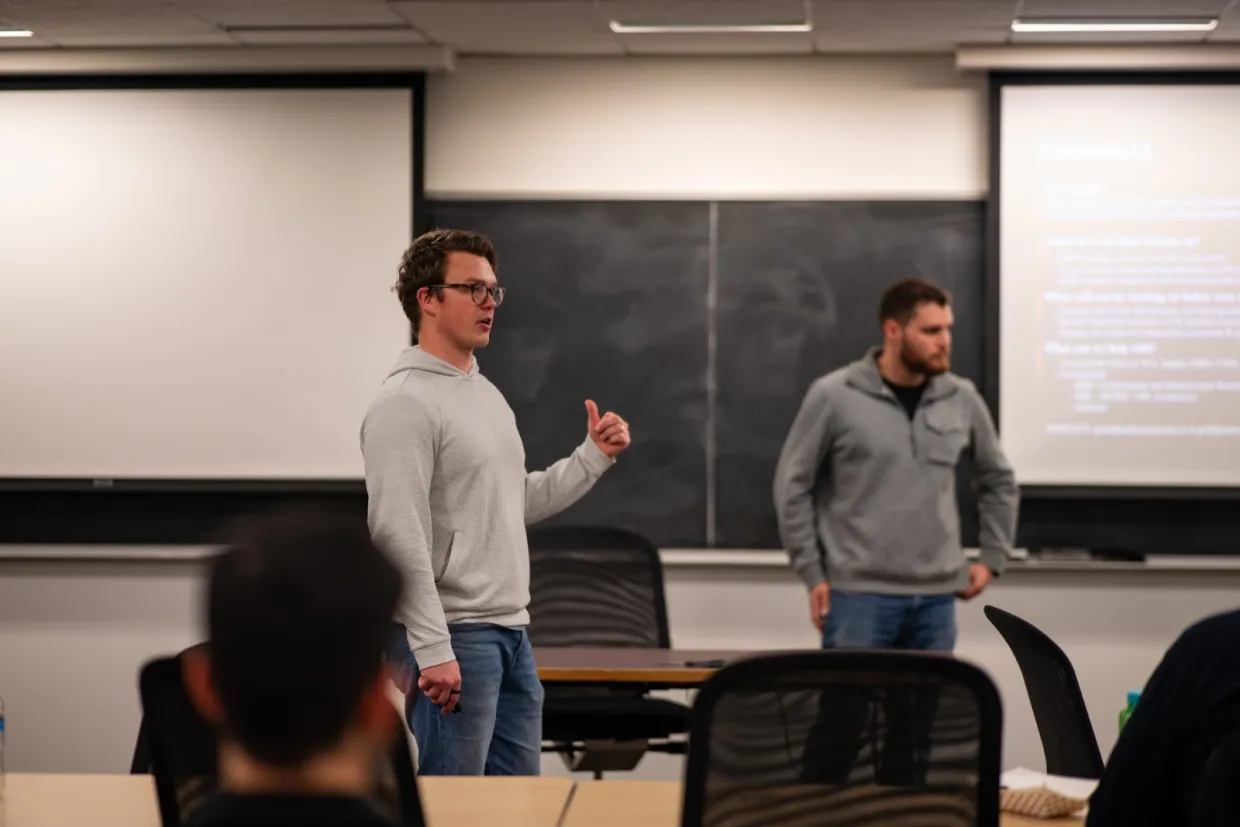
QLab
QLab, a new national security innovation accelerator at Harvard Kennedy School, brings together Harvard and MIT student entrepreneurs with intelligence and defense practitioners to catalyze solutions for real-world challenges. QLab organizes weekly workshops and guest speaker sessions with the QLab student teams during the spring and summer, featuring luminaries in defense strategy, venture capital, and emerging technologies. Check out the latest sessions below!
Applications for Spring 2026 have now closed.
Weekly Session Updates
About QLab
QLab is a new accelerator aimed at bolstering U.S. national security innovation. Housed within the Harvard Kennedy School's Belfer Center's Intelligence Project, the initiative is designed to foster collaboration among student entrepreneurs from Harvard and MIT, intelligence and national security practitioners, and experienced mentors from the venture, startup, and defense communities. The initiative creates a rare convergence of policy expertise, cutting-edge research, and entrepreneurial skill, intended to address the next generation of national security issues. The dual focus on policy and entrepreneurship aims to develop solutions that are both scalable and mission-critical.
QLab’s approach unites public policy practitioners with tech-focused students, emphasizing rapid iteration and lean startup methodologies traditionally seen in Silicon Valley. The program draws upon the Belfer Center faculty and fellows' expertise and experience with government agencies and unites it with the innovation and passion of entrepreneurs across the Harvard and MIT ecosystems to develop dual-use technologies.
Applications for Spring 2026 have closed. If you are interested in participating in QLab or attending their events, please fill out this QLab Interest Form.
-
Projects are developed and managed independently by students, and student participation in the Qlab accelerator does not imply official endorsement by the Belfer Center for Science and International Affairs, Harvard Kennedy School, or Harvard University for student projects.
Past QLab Sessions
To see our session summaries from past semesters, please check out our QLab Session Archives page! QLab ran weekly workshops in Spring 2025, with select teams continuing through Summer 2025.


